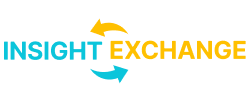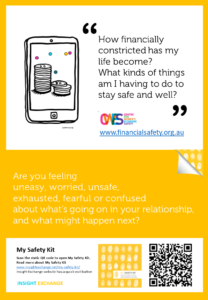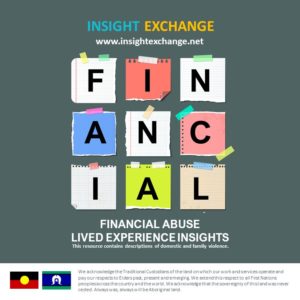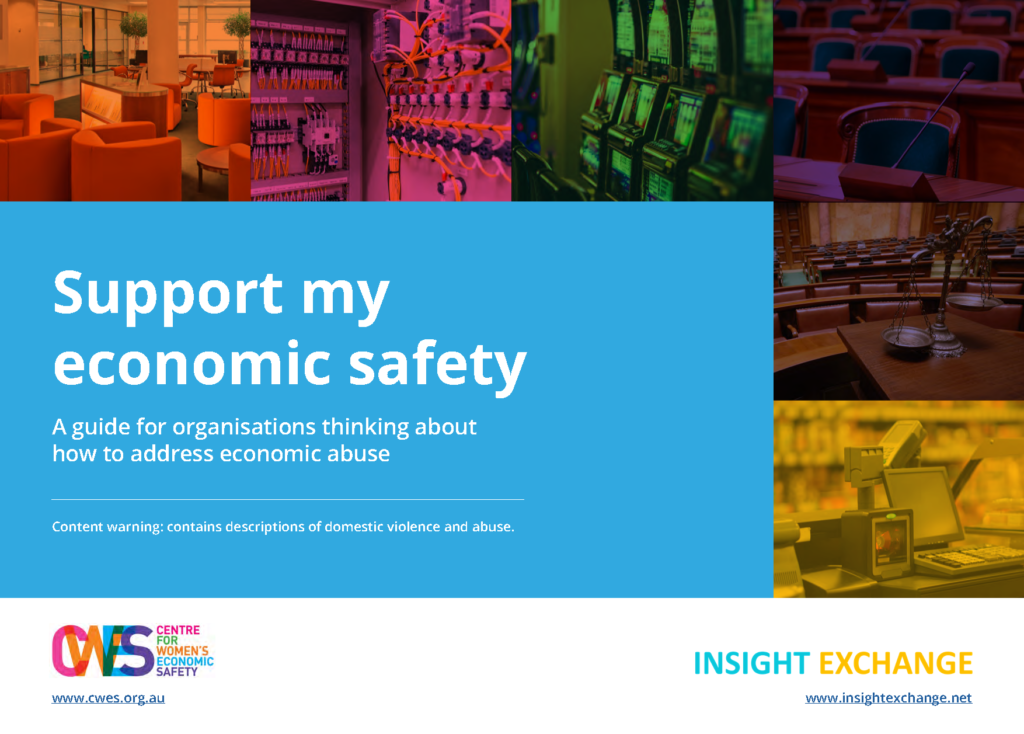My Economic Safety
An introduction to economic abuse
View the video 'Introduction to Economic Abuse' (23mins)
This video is for anyone who wants to learn about financial and economic abuse as a form of domestic and family violence.
A co-production of the Centre for Women’s Economic Safety and Insight Exchange.
Support for financial abuse
If you are experiencing economic abuse from a current or former partner, or you are still dealing with the consequences of abuse, there are organisations that can support you. The Centre for Women's Economic Safety (CWES) provides a directory with links to organisations that may be useful.
Explore My Safety Kit booklet is for people who are – or might be - experiencing domestic and family violence.
Explore insights shared in the Voices of economic abuse.
What is economic safety?
“Economic safety is vital to a person’s wellbeing. It is the human right to a standard of living adequate for the health and wellbeing of a person and their family, including food, clothing, housing and medical care and necessary social services, and the right to security in the event of circumstances beyond their control*. It means being free of economic abuse and includes:
- Having access to appropriate financial products to help manage your finances
- Receiving fair and appropriate financial support for your wellbeing and the wellbeing of children, or others, in your care
- Having structural and systemic support to maintain and build your economic security over time.”
* Article 25 of the UN Declaration of Human Rights.
Source: Centre for Women's Economic Safety
What is economic abuse?
The terms economic abuse and financial abuse are often used interchangeably. Economic abuse represents a broader set of behaviours including financial abuse, and is a form of family violence that:
“… involves behaviors that control a [person’s] ability to acquire, use and maintain economic resources, thus threatening her [or his] economic security and potential for self-sufficiency.”
Economic abuse includes a range of behaviours carried out by a perpetrator such as:
- controlling a victim’s access to cash and bank accounts
- hiding financial information and assets
- sabotaging study and/or employment opportunities
- forcing a partner to take out debt, and
- manipulating finances to avoid or reduce child support payments.
Adams, A. (2008). 'Development of the Scale of Economic Abuse'. Violence Against Women, 14, 563-588.
Read more about domestic and family violence.
Fact Sheets (CWES)
- What is economic abuse
- First steps to economic safety
- Next steps to economic safety
- Economic abuse and the law
Read more on the Source: Centre for Women's Economic Safety
Support My Economic Safety - A guide for organisations thinking about how to address economic abuse
Insight Exchange and Centre for Women’s Economic Safety have collaborated to develop a new resource for responding organisations focused on economic safety.
- View the launch video.
- Open the guide: Support My Economic Safety
Support my economic safety provides guidance and reflections for people in organisations and systems who want to improve responses to economic abuse. It has been developed from the insights of women who have experienced economic abuse in the context of domestic and family violence and includes their words as ‘case studies’ throughout. Lived experiences of economic abuse have significant and ongoing consequences, negatively impacting all domains of wellbeing.
The lived experience insights included in this resource demonstrate the significant potential for better responses, and improved design of products, services and systems to support the economic safety of victim-survivors.



